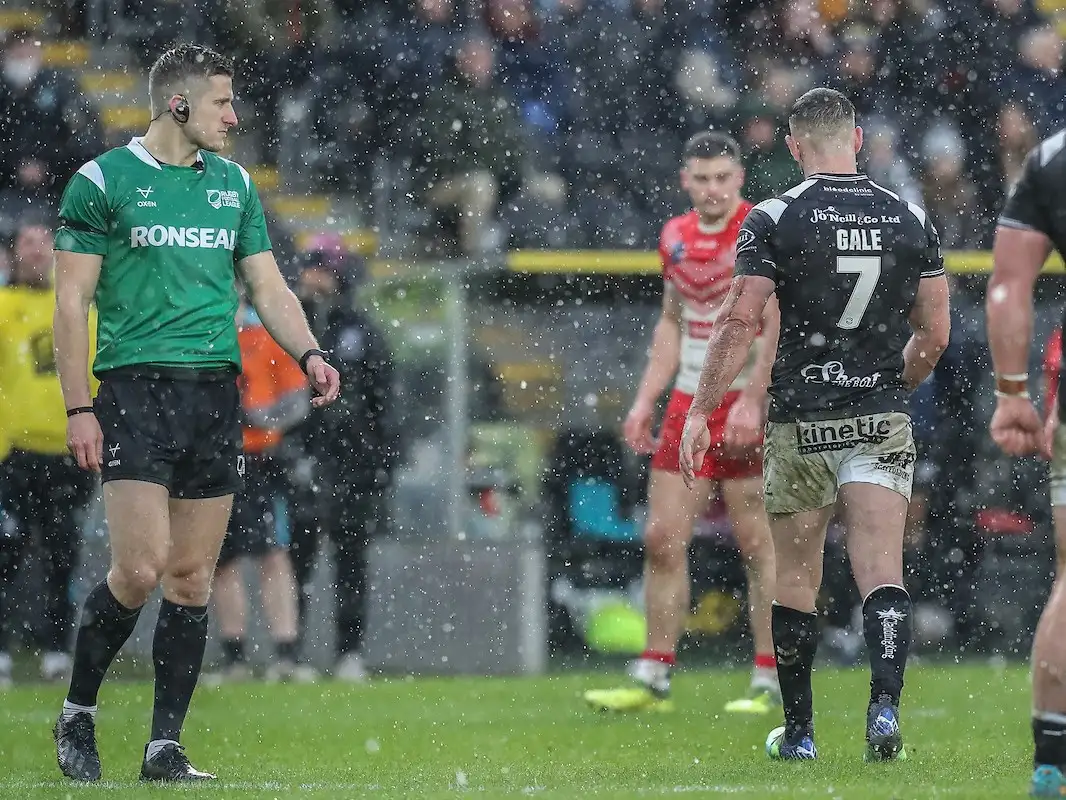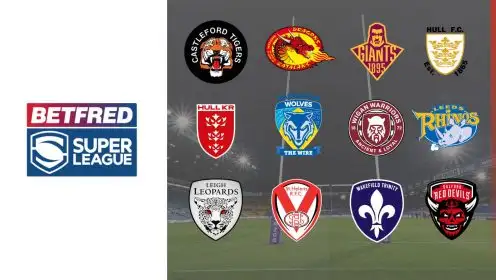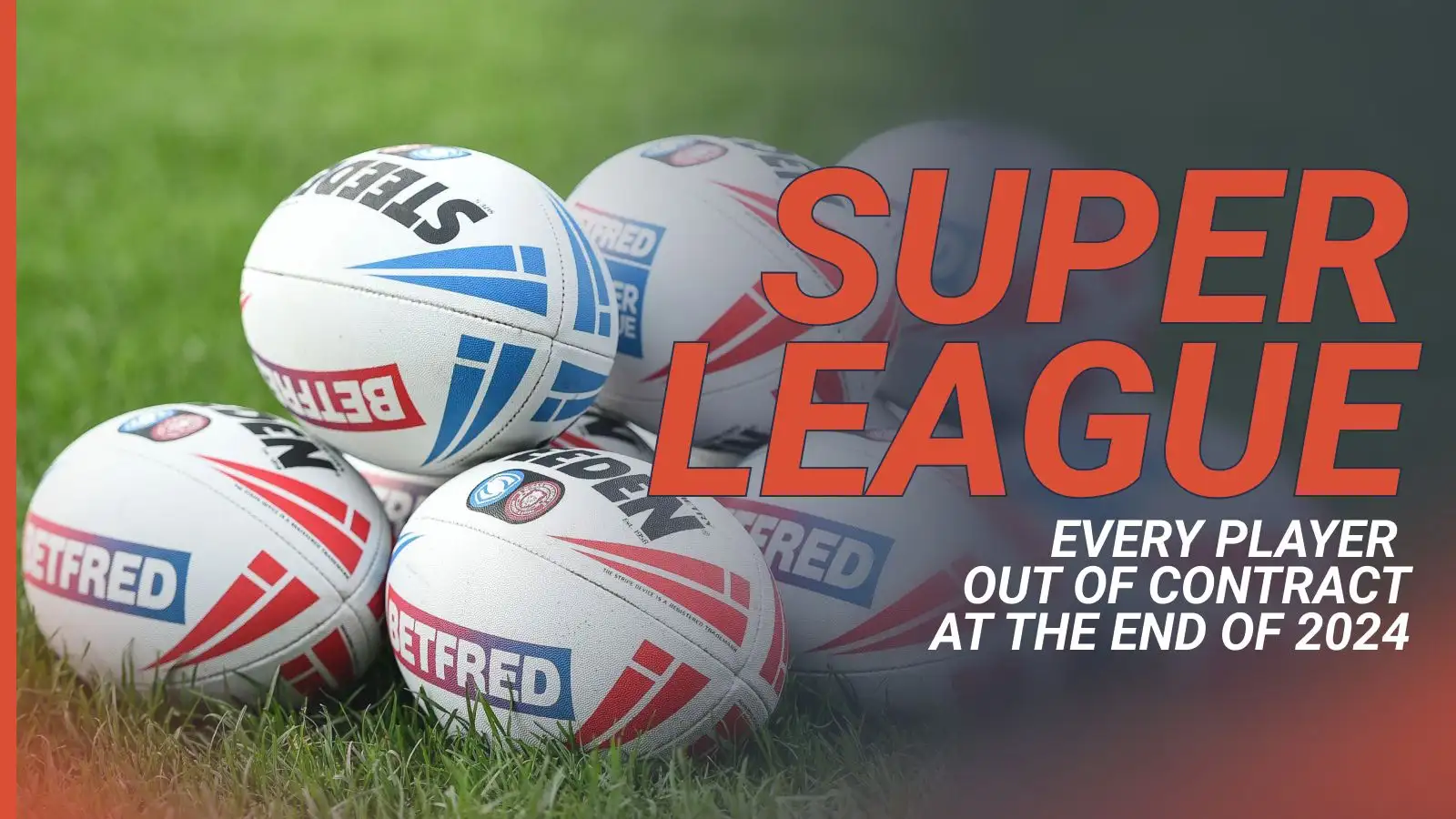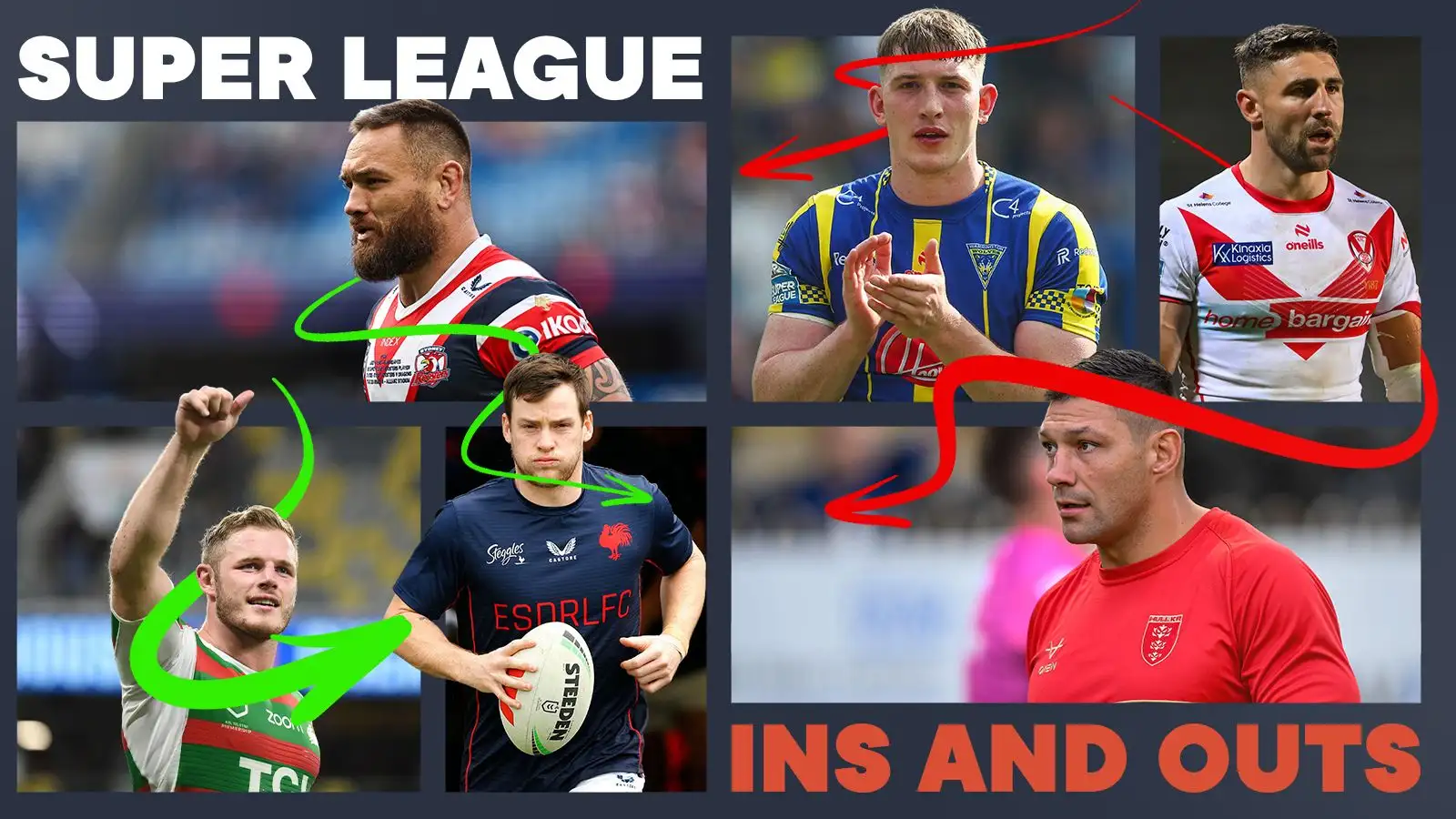“Punishments outweigh the crime” – the disciplinary dilemma

Photo: James Heaton/News Images
For the second successive week, it’s the disciplinary that’s dominating the headlines in Super League.
It was inevitable the big flash points of Hull’s defeat to St Helens would rumble on, though perhaps no one could have anticipated just how much controversy it would cause.
The Hull skipper received a five-match ban – for a combination of his reckless studs up challenge on Jonny Lomax, and his subsequent attempts to drag the potentially injured Saints half-back up from the floor.
Huddersfield hooker Danny Levi has also copped a two-match ban for trying to drag Hull KR’s Mikey Lewis up off the floor.
A total of 22 separate incidents have resulted in charges across the two rounds of Super League so far.
That has led to bans totalling 33 matches for those players involved, with Gale’s five-match ban the worst so far.
It has led to much criticism of the disciplinary process as a result.
The disciplinary process
The RFL website details the process of the match review panel.
The Match Review Panel is made up of former Warrington player and coach Paul Cullen, ex-Great Britain back-rower Paul Dixon, Challenge Cup winner Nathan McAvoy and Australian Phil Veivers.
There have been calls for video explanations to be provided for each incident; particularly after the tackle centre to the Levi charge was ‘leaked’ online.
Pre-COVID, a regular show called “The Sin Bin” presented by Rod Studd saw Cullen give explanations for various disciplinary outcomes.
The RFL are hoping to bring this back in March.
The detail of each case is published, confirming the charge and sanction.
For example, the incident that saw Hull centre Connor Wynne sinbinned was filed with no charge.

The detail was given as: “Player is not lifted into a dangerous position. Player holds a leg in a stationery (sic) tackle. Opponent contributes and rolls himself to the floor.”
That has led to some questioning why the opponent, in this case St Helens’ Jack Welsby, wasn’t cited for his involvement in the incident.
Rugby league disciplinary in context
A major cloud hanging over the RFL at present is the threat of legal action from former players in relation to concussion.
What we’re seeing is a reaction (overreaction?) of a sport running very scared of a litigation hanging over its head for alleged failure to provide duty of care historically to a known risk ( concussion ). Whether right or wrong, the action determines a reaction & here it is.
— Damian Irvine (@damianirvine) February 23, 2022
Ultimately, that means the governing body has to demonstrate a water-tight approach to player welfare and safety.
Otherwise there’s an uncertain future ahead for the whole sport that doesn’t bear thinking about.
Writing in his Hull Daily Mail column, former Hull FC favourite Paul Cooke said: “For me, it’s not as big of a deal as it’s been made out to be.
“It’s a yellow at worse, but the referees follow the directive from above and if they’re being told that’s a serious offence, they’ll follow to those guidelines.
“Also, you can’t pick a player up from the floor. I don’t believe Luke or any player is a medical professional and when a player is injured we see the physios not move a player until they know the manner of the injury and the severity of it, so he was going to get banned for it.
“But at the minute, the punishments outweigh the crime. Danny Levi has got a two-match ban for his on Mikey Lewis.
“It’s not worthy of two matches just like a lot of other incidents of varying nature haven’t been, but that’s where the game is at currently.
“The argument is that by suspending players, they’ll not do it (in future) because of excess suspensions.
“It depends which way you look at it. You can take the case of Mose Masoe, an innocuous challenge. But what would have happened if a Wakefield player touched him? It depends on which way you want to look at it.”
Match, charges, tribunal, appeals; repeat
There is a major divide in opinion over the incidents and the punishments.
It is now becoming the major talking point of the game week in, week out.
Match Review Panel charges are announced on a Monday.
Tribunals and hearings then follow on a Tuesday, with appeals heard on a Wednesday.
That means one incident can be dragged out for three days – and that’s not including the discussion surrounding it immediately after the game itself.
Finding the right balance remains a significant challenge for rugby league.
Charges and suspensions are meant to act as a deterrent to players to stop doing things deemed illegal by the laws of the game.
But rugby league, for clubs and as a sport, can ill-afford to have any of its players sat on the sidelines for prolonged periods.
That can’t be used as an excuse for allowing players to get away with foul play, though.
Perhaps more detailed explanations, using video, could be provided by the RFL for particular incidents.
Though even if they did that, it doesn’t mean fans will like the answers.
MORE: Editor’s column: Toulouse must act fast and ref bashing must stop



